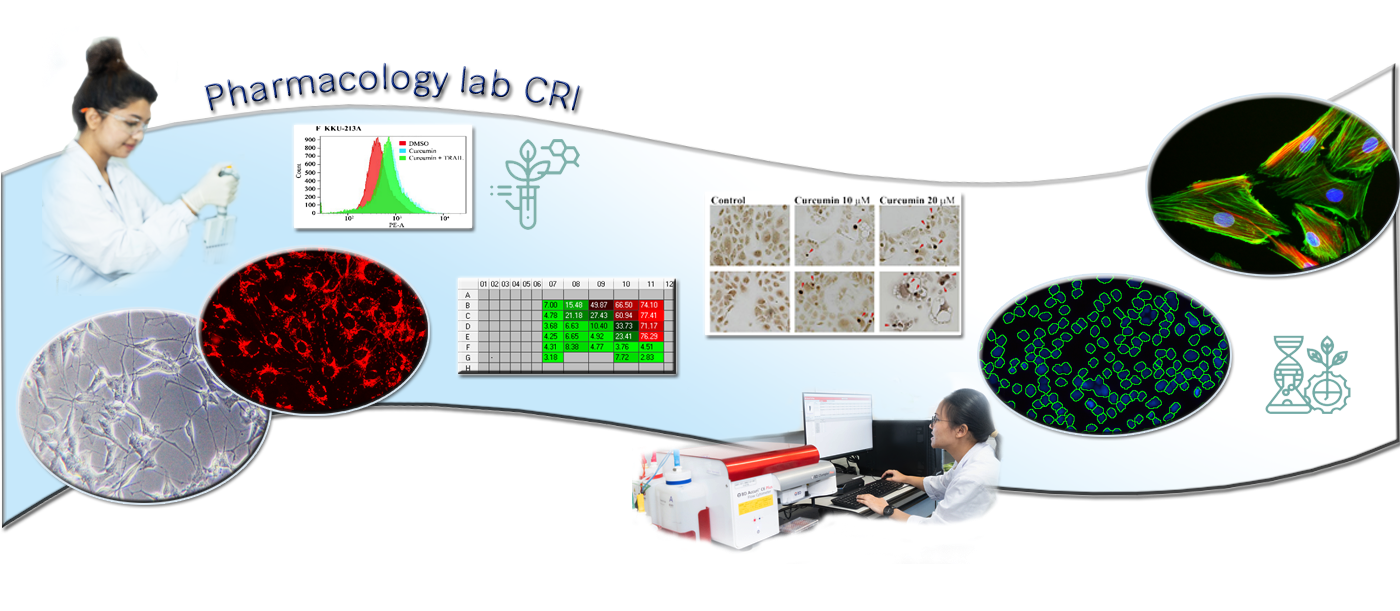Laboratory of Pharmacology

The identification of major bioactive compounds and development of new drugs from natural resource is an important area of research in modern medicine. Naturally occurring chemicals are often considered as a promising source of new drugs due to their potential therapeutic properties. However, before a drug can be approved for human use, it must undergo extensive testing to evaluate both its efficacy and safety. Efficacy testing involves the determination of drug effectiveness at the targeted diseases or conditions. On the other hands, toxicity testing which involves the assessment of the potential adverse effects of individual drug must be performed. The medicinal plant extracts commonly contain various bioactive compounds that may have different chemical interactions which could cause harmful effects on the human body. Therefore, it is crucial to balance between the efficacy and safety upon the development process for various applications such as medicine, cosmeceutical products, and functional food.
In vitro approaches employ biochemical assays in cell culture–based including cancerous and non–cancerous models. While in vivo approaches (preclinical studies) are the next step that provides better insights into the efficacy and toxicity, it also provides additional information on drug–dosing, pharmacokinetics, and pharmacodynamics.
The information from both in vitro and in vivo assessments can help to identify the promising drug candidates that can be proceeded to further development and clinical trials.






